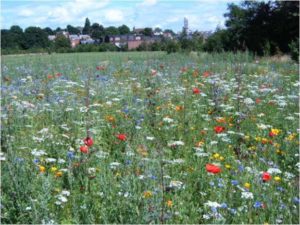Following yesterday’s story about a city centre park, environmental campaigners have issued a letter to
the city.
Dear Birmingham,
Birmingham is a city built on its civic voice and civic pride. The Victorians left us what is now seen as one of Europe’s greenest cities, with 571 parks it is internationally recognised in the same league as Singapore and San Francisco (as UK’s only Biophilic city)! Another opportunity beckons: The Commonwealth Games 2022, with a promise of a green legacy, for the city and the region.
So the signatories of this letter want to know- where are the Green Champions? The success of the city seems to be being measured in cranes and concrete; in the face of global evidence that points to the most successful cities also being the greenest.
The people of Birmingham vote with their feet and their voice daily- in this hot weather the few green places that exist (St Phillips, Brindley Place) are full to capacity with people seeking a place to enjoy the sun, and the shade, for their lunch break. When budget cuts threatened parks budgets the public opposition was the highest of any single issue.
Spending time in nature is good for us, we know from evidence spending a little time in nature every day can help to reduce depression, obesity, increase recovery from  illness and extend our life. In fact, living within 1 km of green space reduces the risk of 15 major illnesses. We are also more productive and likely to take fewer sick days when we have access to nature or can view green space from our place of work.
illness and extend our life. In fact, living within 1 km of green space reduces the risk of 15 major illnesses. We are also more productive and likely to take fewer sick days when we have access to nature or can view green space from our place of work.
Birmingham is not alone in having the paradoxical situation of becoming more densely populated with increasing social isolation. This of course leads to widening health inequalities and social costs due to the deadly triad of inactivity, obesity and unhappiness. Those in our poorest districts live 10 years less and develop chronic disease 17 years earlier than those in the most affluent. Cities, including Birmingham, must change and quickly and make sure the benefits are felt by everyone not reinforce social isolation.
What the cranes and concrete represent is an unprecedented opportunity to create a green heart of our city that will benefit all of us who live and work here, and attract more visitors; and more investment. The sites of HS2, metro extensions, the rebuilding of the Smithfield market area, Digbeth regeneration, HSBC offices, Icknield Port Loop and many more are currently planned in isolation with little consideration for the overall green space including the vital connecting corridors such as hedge lined pathways, tree lined avenues, green canal tow paths and rivers that allow people and wildlife to travel through our city.
We know the people of Birmingham value our green spaces. More than 6,000 people have signed the CityPark4Brum petition calling for a much larger park to be included in the Smithfield redevelopment plan.
The Greener Birmingham Coalition, a grouping of individuals, organisations and community groups working together to protect and improve the green spaces of our city, is calling for a new way of planning city centre developments. All developments should include nature and green spaces from the early planning stages recognising that people want to live and work close to nature. These sites must all be viewed as connected with planners making sure there are green routes between them all enabling people to walk and cycle easily through the city centre, and wildlife to come back to central Birmingham.
Crucially, the people who live and work here should be permanently engaged in how the city is shaped. Greener Birmingham call on city leaders to commit to a People’s Summit on Nature as a response to the Government’s Year of Green Action in 2019.
We hope to work with city leaders and planners together to make sure Birmingham provides a natural, healthy environment for people and wildlife; and a naturally healthy economy.
Yours faithfully,
Greener Birmingham


